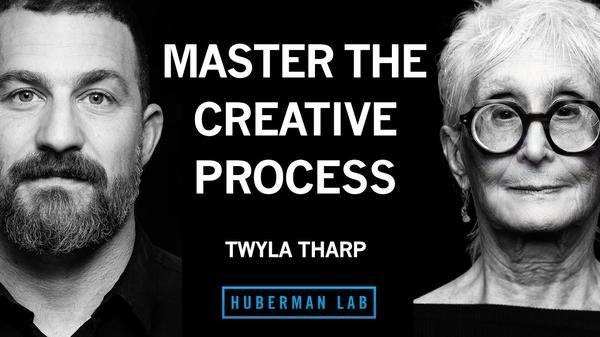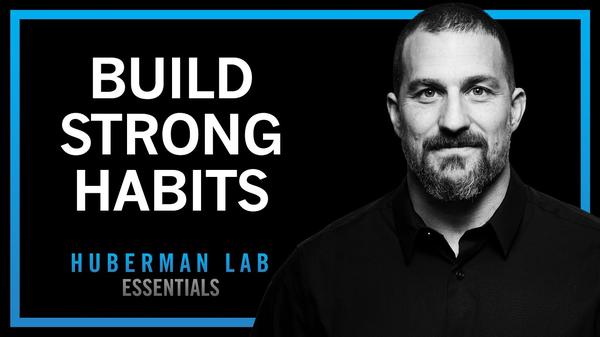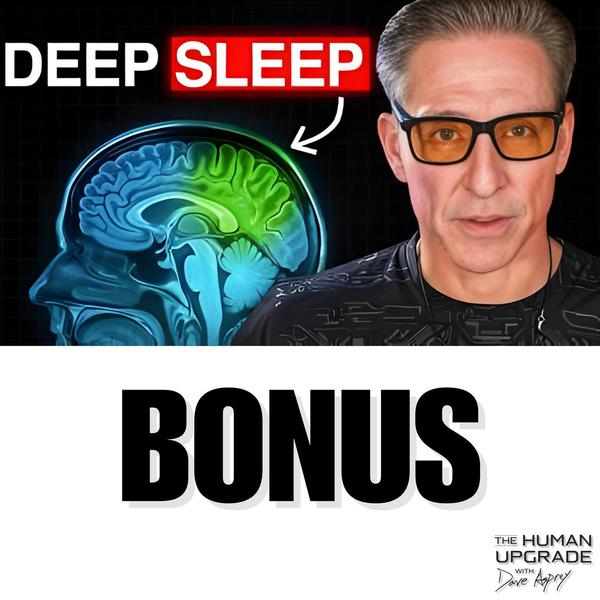
Dr. Matt Walker: Improve Sleep to Boost Mood & Emotional Regulation | Huberman Lab Guest Series
Andrew Huberman
May 1, 2024
Mindsip insights from this episode:
Recognize nightmares as key suicide risk indicators
Nightmares are a more powerful predictor of suicide risk than sleep disruption alone, increasing the likelihood by five to eight times.
Align sleep with your chronotype to combat depression
For depression, circadian misalignment—not sleeping in sync with your natural chronotype—is one of the strongest predictive factors, making timing the most critical aspect of sleep to address first.
Prioritize deep non-REM sleep to reduce anxiety
It is the quality of deep non-REM sleep, not REM sleep, that is most predictive of reducing anxiety, as it helps reset the nervous system towards a calmer state.
Utilize Prazosin to eliminate PTSD nightmares
The blood pressure drug Prazosin can resolve PTSD-related repetitive nightmares by blocking noradrenaline in the brain, allowing the 'overnight therapy' function of REM sleep to finally work.
Sleep in 20-30 minutes to enhance REM sleep
The simplest, non-pharmacological way to increase your REM sleep is to sleep in 20-30 minutes later in the morning, as the last part of the night is the most REM-rich phase.
Manage sleep to reduce impulsivity and addiction risk
When sleep-deprived, you become abnormally overreactive to both negative and positive rewarding stimuli, which explains why you are more impulsive and have a higher addiction potential.
Prioritize REM sleep to process emotional memories safely
REM sleep is the only time during the 24-hour period when the brain completely shuts off the stress-related chemical noradrenaline, creating a safe environment to process emotional memories.
Utilize REM sleep for emotional healing and memory retention
REM sleep acts like overnight therapy by stripping the emotional charge, or the 'bitter emotional rind,' from memories, allowing you to retain the information without the visceral reaction.
Restore sleep to reconnect brain's rational control
Sleep deprivation severs the connection from the prefrontal cortex, which acts as a rational brake, to the amygdala, leaving you with an emotional gas pedal and very little control.
Prioritize sleep to regulate emotional responses
A lack of sleep can cause a 60% increase in the reactivity of the amygdala, the brain's emotional center, making neutral events feel emotional and negative events feel much worse.
More from
Andrew Huberman
You also might be interested in
Your Brain Has A Sleep Switch (Do THIS To Turn It On)
How To COOL Your Body For Better Sleep, INCREDIBLE Travel Sleep Tips & Orion Vs. Eight Sleep With Dr. Michael Breus
Everything You Need To Know About Sleeping Better, Hacking Sleep, Sleep Cycles, Insomnia, Sleep Apnea & More With Dr. Daniel Gartenberg (Best of LIFE Network's Experts!)
This Commonly Missed Disease Can Rapidly Age Your Brain
This Commonly Missed Diagnosis Leads to Rapid Brain Aging












